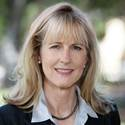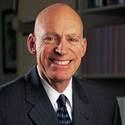Research Seminar: "Who Gets Hired?" with Ed Lazear and Kathryn Shaw


Seminar with Ed Lazear and Kathryn Shaw, Stanford Business School
Who Gets Hired? The Importance of Finding an Open Slot
Abstract:
Despite seeming to be an important requirement for hiring, the concept of a slot is absent from virtually all of economics. Closest is the macroeconomic studies of vacancies and search, but the implications of slot-based hiring for individual worker outcomes has not been analyzed. A model of hiring into slots is presented. Job assignment is based on comparative advantage. Crucially, and consistent with reality, being hired and assigned to a job depends not only on one’s own skill, but on the skill of other applicants. The model has many implications the most important of which are: First, bumping occurs, when one applicant is bumped from a job into a lower paying job or unemployment by another applicant who is more skilled. Second, less able workers are more likely to be unemployed because high ability workers are more flexible in what they can do. Third, vacancies are higher for difficult jobs because easy jobs never go unfilled. Fourth, some workers are over-qualified for their jobs whereas others are underqualified. The mis-assigned workers earn less than they would had they found an open slot in a job that more appropriately matches their skills. Despite that, overqualified workers earn more than the typical worker in that job. These implications are borne out using four different data sets that match the data requirements for of these point and others implied by the model.
Edward Lazear was named Honorary Doctor at CBS in 2013. He is the founder of Personnel Economics and of the prestigious Journal of Labor Economics. Edward Lazear has through his works covered most areas of Personnel Economics. He is well known for his simple models of management problems. These models give valuable insights in the mechanisms and the solutions of his analysis provide managers and politicians with valuable instruments.
Kathryn Shaw is well-known for her firm based studies of various industries. Most of her works are within Personnel Economics. She has contributed with highly original studies of empirical management behavior within a wide scope of Personnel Economics and related areas.
Both have also worked with macroeconomics while serving on the Economic Council of the various Presidents of the USA. Kathryn Shaw was member of the Economic Council under the Clinton Administration, while Edward Lazear served as chairman of Economic Advisers during the unfolding of the Great Recession during the last years of the George W. Bush administration.
Please register your attendance before January 12 by sending an e-mail to ccg@cbs.dk.